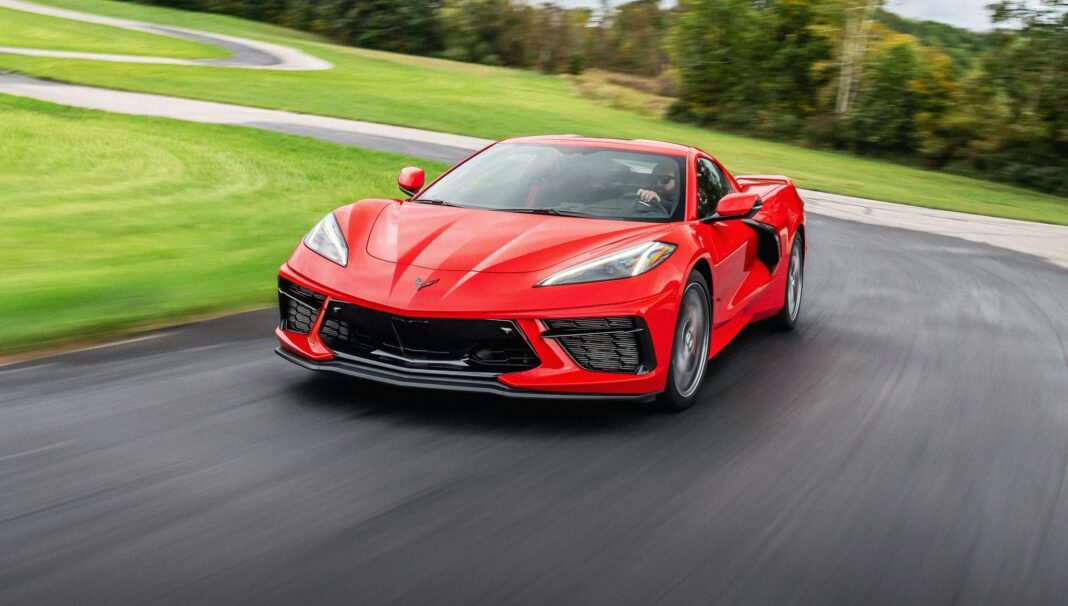The 2020 Chevrolet Corvette marked a turning point for America’s iconic sports car. With a dramatic mid-engine redesign, the C8 Corvette entered the territory of European exotics, offering supercar performance at a fraction of the price. But how does this legendary machine stack up against newer electric challengers like the BMW i4? Let’s delve into the details.
Overview
The 2020 Corvette Stingray, the sole trim available that year, ditched the traditional front-engine layout for a mid-mounted powerhouse. This shift completely transformed the driving experience, offering superior weight distribution and handling that rivals European marques. The Corvette retained its removable roof panel on the coupe version, while a retractable hardtop convertible joined the lineup later in the year.
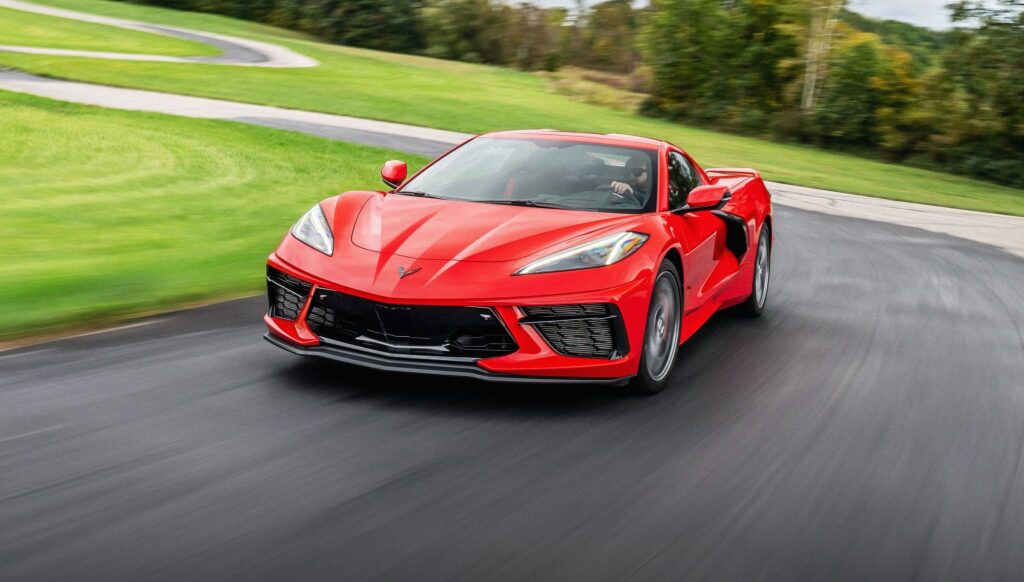
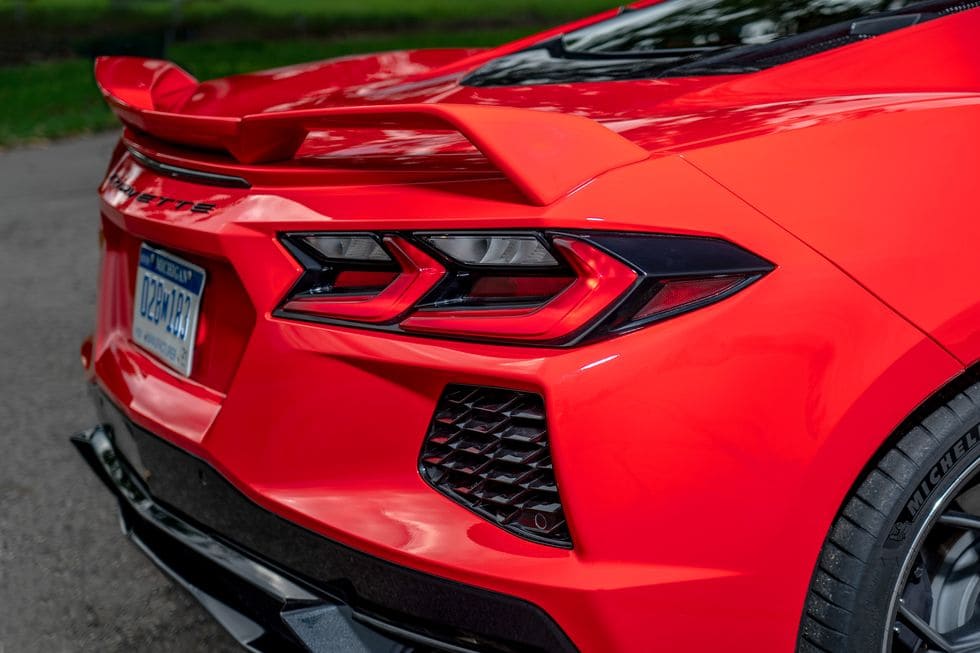
Pricing
The 2020 Corvette offered a surprisingly affordable entry point for a car boasting such performance. The base 1LT model started at a very reasonable $59,995. Stepping up to the 2LT and 3LT trims added features and amenities, with prices reaching up to $78,495 depending on options. This aggressive pricing strategy made the Corvette a compelling option for those seeking supercar thrills without a supercar budget.
Engine and Transmission
The heart of the 2020 Corvette lies in its naturally-aspirated 6.2-liter LT2 V8 engine. This beast pumps out a remarkable 490 horsepower and 465 lb-ft of torque, propelling the Corvette from 0 to 60 mph in a blistering 2.8 seconds (with the Z51 performance package). The sole transmission option was a revolutionary 8-speed dual-clutch automatic, offering smooth gear changes and optimal power delivery.
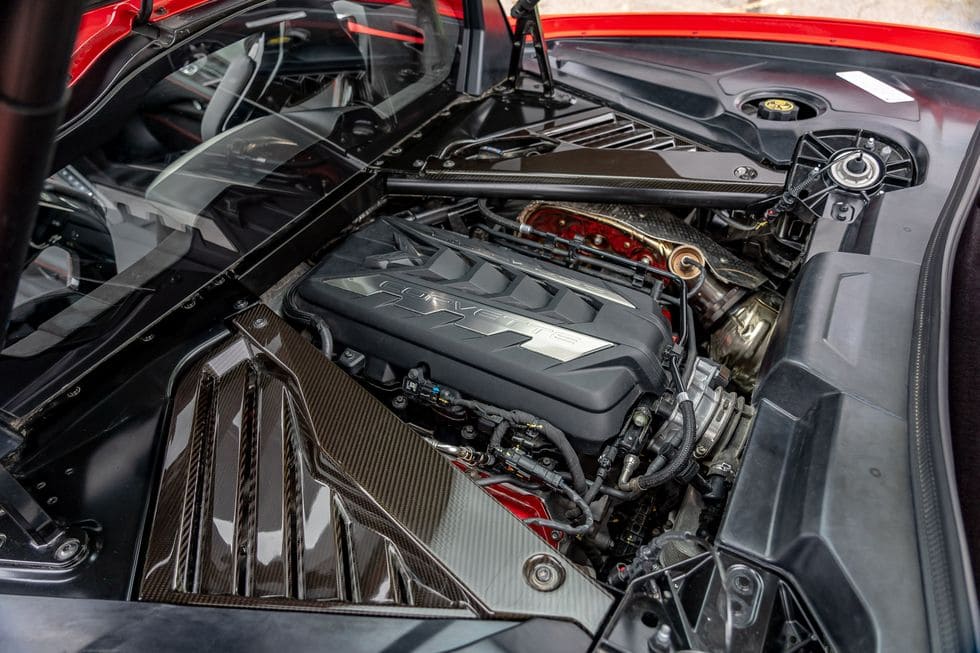
Performance and Fuel Economy
The 2020 Corvette wasn’t just about raw power; its mid-engine design resulted in exceptional handling and agility. The car felt planted and composed on winding roads, delivering a truly exhilarating driving experience. However, the focus on performance came at a cost. Fuel economy figures weren’t the Corvette’s strong suit, with EPA estimates hovering around 19 mpg city and 29 mpg highway for the coupe. The convertible versions saw slightly lower figures.
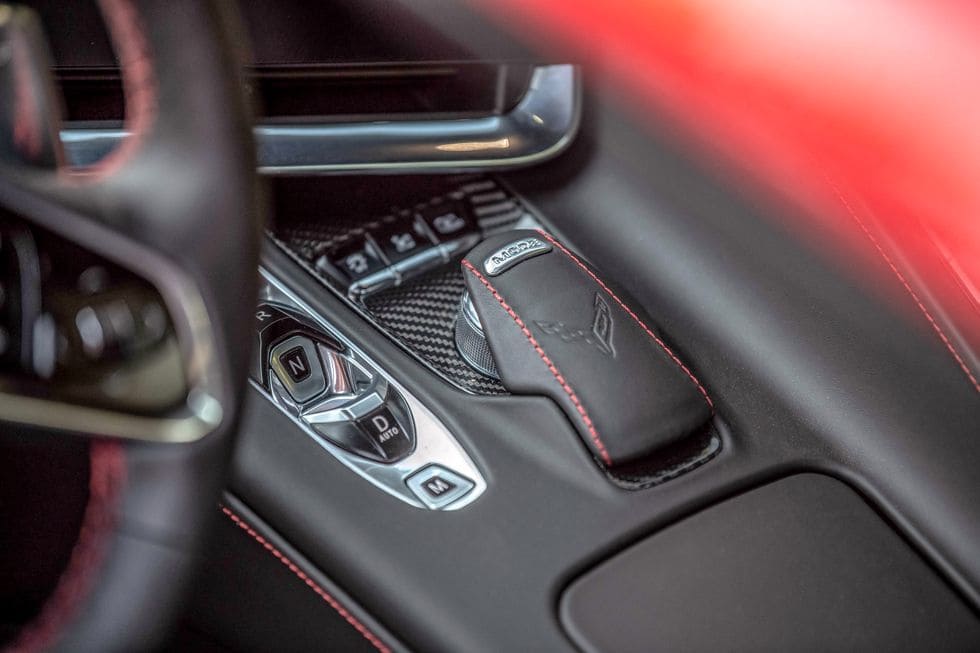
Interior, Comfort, and Cargo
While the emphasis was clearly on performance, the 2020 Corvette didn’t neglect its interior entirely. The driver-centric cockpit offered a comfortable and well-bolstered seat, putting all the necessary controls within easy reach. Material quality was good, with a mix of soft-touch plastics and leather accents. However, rear seats were practically unusable, and cargo space was limited even with the roof panel removed.
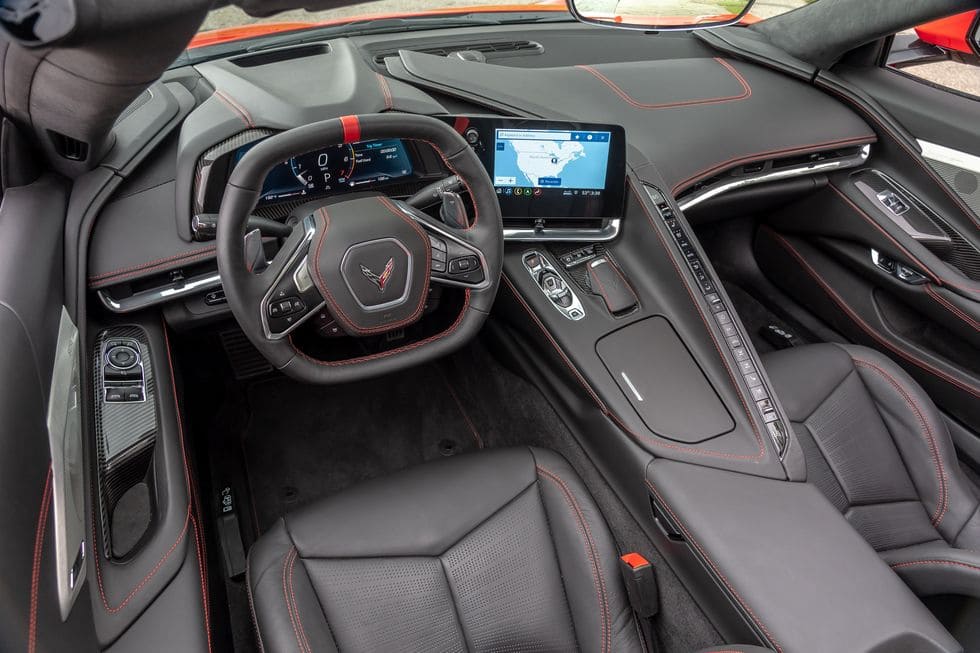
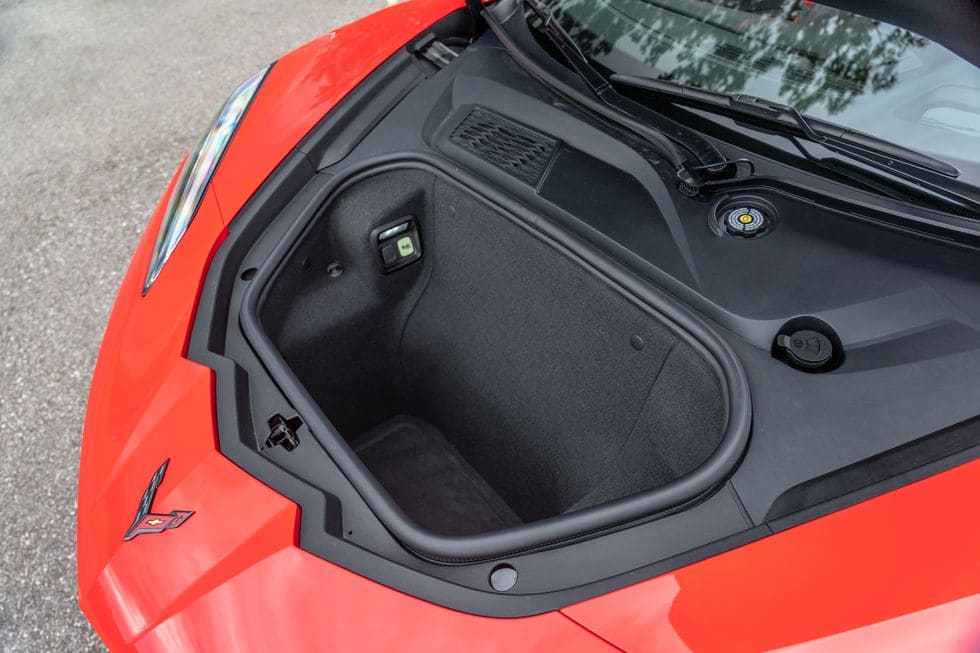
Safety Features and Crash Test Ratings
The 2020 Corvette came equipped with standard safety features like forward-collision warning, automatic emergency braking, and lane departure warning. However, it lacked some of the driver-assistance features becoming increasingly common, such as lane-keeping assist and adaptive cruise control. The National Highway Traffic Safety Administration (NHTSA) awarded the Corvette a four-star overall safety rating, with five stars in the side crash test.
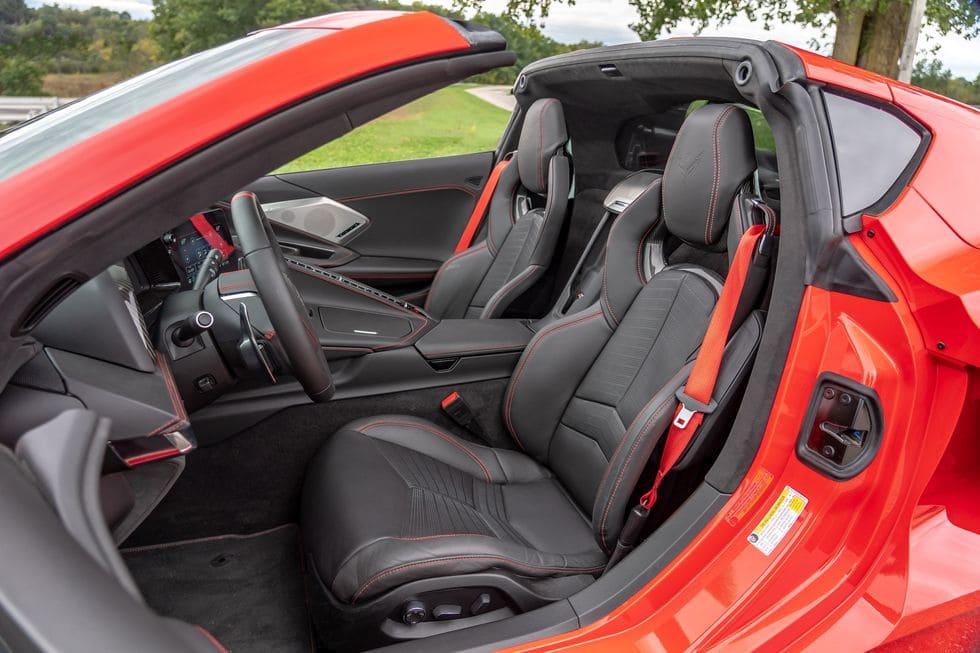
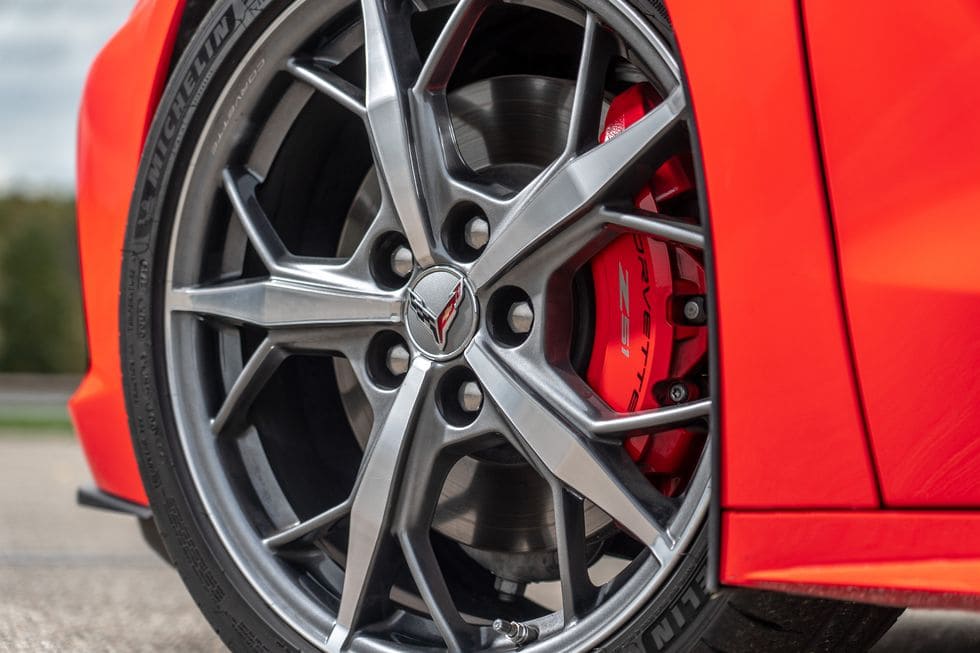
Conclusion
The 2020 Chevrolet Corvette remains a thrilling and iconic sports car. Its mid-engine design, impressive power, and sharp handling make it a true driver’s machine. However, with the rise of electric performance vehicles like the BMW i4, the Corvette faces new competition. While the i4 offers instant torque and a more environmentally friendly approach, it may not deliver the same visceral driving experience. Ultimately, the choice between these two cars comes down to personal priorities. The Corvette offers a thrilling, old-school sports car experience, while the i4 represents the future of performance driving.





